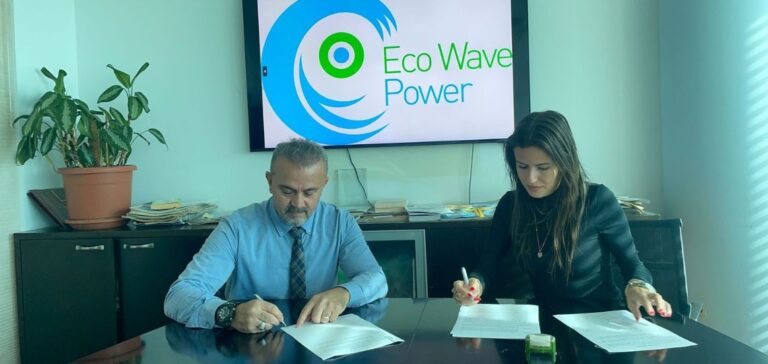Ordu, Turkey, will be home to the world’s largest wave power plant from Eco Wave Power and Ordu Energji.
A wave power installation
Ordu will host a wave energy facility of up to 77MW. It will be the first grid-connected wave power plant in Turkey. In addition, when completed, it will be the largest wave power plant in the world.
The investment for the wave power plant amounts to $150 million. By contract, Ordu Enerji will award 9 potentially suitable breakwaters to Eco Wave Power for a period of 25 years. Eco Wave Power, in turn, will be responsible for the construction and sale of electricity.
The construction of the Ordu power plant is expected to be carried out in several stages. Indeed, the project will start with a pilot station of up to 4MW. Thereafter, Eco Wave Power will continue the construction to reach a total of 77MW.
A diplomatic partnership
Ordu Enerji executives were visiting the Eco Wave Power plant located in the port of Jaffa, Israel. Following this visit, the signing of the contract took place during an official ceremony in the premises of Eco Wave Power in Tel Aviv. Thus, this contract is part of the rapprochement efforts between Turkey and Israel.
Inna Braverman, founder and CEO of Eco Wave Power, states:
“We are very pleased to announce this historic agreement between Eco Wave Power and Ordu Enerji, as this relationship will allow us to provide clean electricity from Turkish waves for the first time ever. With ambitious sustainability goals and regional proximity to our headquarters, Turkey is an attractive location to further implement and develop our innovative wave energy technology.”
Turkey wants to build a self-sufficient network. The municipality of Ordu recognizes the potential of the sea to supply its electricity network with clean energy.
Since 2019, Ordu Enerji, is a subsidiary of the metropolitan municipality. Ordu Enerji’s goal is to advance the energy sector throughout Turkey. For Eco Wave Power, the company has a pioneering technology with a total project pipeline of 404.7MW.






















